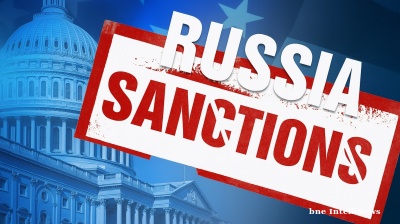Anne Applebaum’s Autocracy, Inc: The Dictators Who Want to Rule the World provides a compelling analysis of how modern autocracies, though ideologically diverse, are united by a single-minded pursuit: preserving their wealth and power.
She argues that today’s autocrats, ruling countries from Russia to China to Venezuela, do not form ideological blocs like those of the Cold War era, but are instead bound by "deals" rather than “ideals". This network of regimes operates much like corporations, hence the title "Autocracy, Inc."
Elaborating on this in a podcast broadcast by think-tank Chatham house in early September, she says that Autocracy Inc. describes a network — rather than an alliance — of countries that do not share an ideology, “but they do work together, opportunistically”.
Key members include Russia, China, Iran and Venezuela, but there are numerous others, as well as so-called hybrid states like Hungary, Turkey and the UAE.
Applebaum, a Pulitzer Prize winner, unravels the "unlikely partnerships" between these regimes, showing how they exploit the global financial system to enrich themselves and undermine Western democracies. She points to incidents like Russia's annexation of Crimea, which was supported by authoritarian states like Zimbabwe and Belarus.
Specifically, says Applebaum, the autocratic states "often cooperate on helping each other out when they’re in trouble”.
The book points to how the opposition movements in Belarus and Venezuela failed to a large extent because “they were not fighting autocrats only at home; they were fighting autocrats around the world”.
Applebaum also explores how such regimes collaborate through financial networks to launder money and protect each other’s ill-gotten wealth. These autocrats "are connected not only one to another within a given autocracy but also to networks in other autocratic countries, and sometimes in democracies too”.
The states in question have a a common interest — or rather a common enemy, the liberal democratic world, according to Applebaum. “Transparency, accountability, rule of law, human rights — those ideas are the biggest challenge to their form of absolute government,” she told the podcast.
Their loose alliance is focused on discrediting democracy rather than promoting autocracy. China and Russia, for instance, have supported each other’s propaganda efforts; China’s StarTimes satellite broadcasting Russia Today (RT) in Africa after it was banned by other networks is a case in point.
As to when this network emerged, Applebaum says the concept has been present for some time, especially in Vladimir Putin’s Russia. However, she identifies a turning point around a decade ago; the time when Xi Jinping cemented his rise to power in China and Putin faced the possibility of a liberal democratic Ukraine with the Maidan revolution, seen as a threat to his regime in Russia, especially if it was followed by successful anti-corruption reforms.
Shortly after Euromaidan came Russia’s annexation of Crimea and the outbreak of fighting in eastern Ukraine, followed in 2022 by Russia’s unprovoked invasion of its neighbour. While widely condemned in the West, Russia has managed to secure support from fellow autocrats around the world — from China’s intensification of trade with Russia, to supplies of weaponry from Iran and North Korea, to backing at the UN from Russia’s friends in Africa and the facilitation of imports crucial to Russia’s defence industry via several Eurasian states.
But Western politicians are not spared in Autocracy, Inc. which explores how the West’s misjudgments have enabled autocrats. For instance, Applebaum critiques the West’s complacency with China’s rise and Russia’s gas leverage, which created vulnerabilities that autocrats have exploited. Germany’s deep economic ties with Russia, as exemplified by the Nord Stream pipelines, are singled out. She further criticises Western leaders for lecturing Putin on democracy while simultaneously benefiting from lucrative deals with his regime.
Applebaum doesn’t argue that the regimes that make up Autocracy Inc. are planning a coordinated assault on the West. Rather, she sets out the financial and political ties that bind these autocrats together, all centred around their desire to gut the post-1945 international order; the historian specifically quotes Russian Foreign Ministry Sergey Lavrov’s ambition for Moscow to “create a new world order”.
While Autocracy, Inc. doesn’t definitively argue that these regimes will unite in a full-scale confrontation with the West, it highlights the serious risks posed by their growing influence and economic entanglements. Applebaum calls for stronger transparency and international cooperation to prevent autocrats from hiding their wealth in democratic countries. Her book serves as a warning, urging democracies to strengthen their own institutions while reducing dependence on authoritarian regimes.
Autocracy, Inc. was published by Penguin Random House in 2024.
Opinion

COMMENT: ANO’s election win to see looser Czech fiscal policy, firmer monetary stance
The victory of the populist, eurosceptic ANO party in Czechia’s parliamentary election on October 6 will likely usher in a looser fiscal stance that supports growth and reinforces the Czech National Bank’s recent hawkish shift.

COMMENT: Ukraine's drone attacks on Russian refineries have probably reduced throughput by 30.4%, less than headline figures suggest
Ukraine has been hitting Russian refineries and caused a fuel crisis that has spead across multiple regions. The headline figure is that oil refining has been reduced by 38% since August, but digging into it and the reduction is likely less.

MACRO ADVISORY: The unintended consequences of Western sanctions
Since 2014, Western nations have hit Russia with a total of 26,655 sanctions (to mid-September 2025), with 23,960 coming after February 2022. The largest target group, with 13,611 sanctions, is state officials, business owners, and oligarchs.

PANNIER: Few will mourn passing of Turkmen Iron Lady Atajanova and Uzbek Grey Cardinal Jurabekov
Their deaths seem to have been conveniently overlooked for the most part by the authorities of today.
_Cropped_1759411324.jpg)



